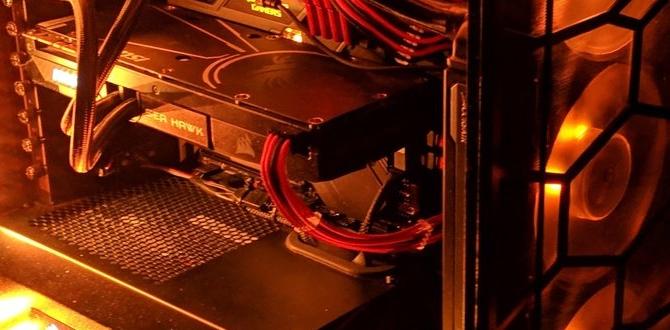Building a gaming PC can be an exciting and rewarding experience. It allows you to tailor your system to meet your specific gaming needs and budget. In this guide, I will walk you through the process of building a powerful gaming PC for under $700. From selecting the right components to assembling and optimizing your system, I will cover everything you need to know to create a gaming rig that delivers an immersive gaming experience without breaking the bank.
Research and Choose Components
Processor
When building a gaming PC, the processor is a crucial component that can significantly impact your system’s performance. Look for a mid-range processor like the AMD Ryzen 5 or Intel Core i5 series, which offers a good balance of performance and affordability.
Graphics Card
The graphics card is another essential component for gaming. Aim for a mid-range GPU like the NVIDIA GTX 1660 or AMD Radeon RX 580, which can handle modern games at 1080p resolution with smooth frame rates.
Memory
For gaming, 8GB to 16GB of RAM is typically sufficient. Ensure you choose RAM modules that are compatible with your motherboard and have decent speed to support your gaming needs.
Storage
Consider a combination of a fast SSD for your operating system and favorite games, along with a larger HDD for storage of other files and games. This setup offers both speed and ample storage capacity.
Power Supply
Choose a reliable power supply unit (PSU) with sufficient wattage to support all your components comfortably. A 500W to 600W PSU from a reputable brand should be adequate for a budget gaming PC.
Set Budget and Prioritize Components
Allocate funds based on importance
When working with a budget, prioritize your spending on components that have the most significant impact on gaming performance, such as the GPU and CPU. Allocate more funds to these components while carefully selecting other parts to stay within your budget.
Assemble the Gaming PC
Install components into the case
Begin by installing the processor, CPU cooler, RAM, GPU, storage drives, and power supply into the case. Ensure proper cable management for optimal airflow and aesthetics. Double-check all connections before powering on your system.
Test and Optimize Performance
Check for compatibility and drivers
Before booting up your PC, verify that all components are compatible with each other and the motherboard. Install the latest drivers for your GPU and other hardware to ensure optimal performance. Run benchmark tests to assess your system’s capabilities.
Finalize Setup and Enjoy Gaming
Congratulations! You have successfully built a great gaming PC for under $700. With the right components and careful assembly, you can now enjoy a smooth gaming experience without breaking the bank. Whether you’re diving into the latest AAA titles or exploring indie gems, your new gaming rig is ready to deliver hours of entertainment.
Conclusion
Building a gaming PC on a budget is a rewarding endeavor that allows you to create a system tailored to your gaming preferences. By carefully selecting and assembling the right components, you can enjoy high-quality gaming experiences without overspending. Follow this guide to build a great gaming PC for under $700 and unleash the power of your custom-built rig.
FAQs
1. Can I upgrade my gaming PC in the future?
Yes, one of the advantages of building your gaming PC is the flexibility to upgrade components in the future. You can easily swap out parts like the GPU, CPU, and storage to improve performance.
2. Do I need to overclock my CPU for gaming?
Overclocking is not necessary for gaming, but it can provide a performance boost if done correctly. However, it may void your warranty and increase power consumption and heat output.
3. How important is cooling in a gaming PC?
Proper cooling is crucial for maintaining optimal performance and longevity of your components. Invest in quality case fans and a CPU cooler to prevent overheating during intense gaming sessions.
4. Should I invest in RGB lighting for my gaming PC?
RGB lighting is a matter of personal preference and does not impact performance. While it can enhance the aesthetics of your setup, it is optional and may add extra cost to your build.
5. What are the key differences between AMD and Intel processors for gaming?
AMD processors generally offer better multi-core performance for the price, making them ideal for multitasking and productivity tasks. Intel processors tend to have higher single-core performance, which can benefit gaming performance in some scenarios.
